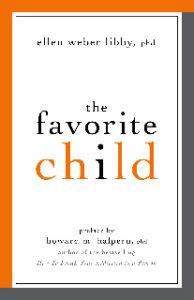 As we prepare for the final class of my Bring Your Book to Life® Program–a bonus call with literary agent Jody Rein–a participant sent in one of the most exciting questions you can imagine. A traditional publisher is interested in her book after reading the proposal. They had a few questions for clarification before bringing the book proposal to the editorial board.
As we prepare for the final class of my Bring Your Book to Life® Program–a bonus call with literary agent Jody Rein–a participant sent in one of the most exciting questions you can imagine. A traditional publisher is interested in her book after reading the proposal. They had a few questions for clarification before bringing the book proposal to the editorial board.
She wanted to know what’s next. In particular, she wondered what questions to ask a publisher once you have a book offer in hand. Here are a few questions I recommended:
1. What’s their vision for the book? Are there things they would like to change? If so, what are they?
2. What will they do in terms of marketing the book?
3. Are they placing any limitations on how you can market and promote the book?
4. Do you, as author, have any say in title and cover design? How much?
There are other questions you will want answered–most of them will be spelled out in the contract, such as:
1. What is your advance and how will payments be distributed?
2. What is your royalty percentage and how is it calculated? (Usually it’s 10% but make sure that’s on cover price or cover price minus transportation costs; if it’s on profit, you’ll likely never see a dime!)
3. Are there any bonuses in the contract when sales hit a certain target?
4. Who owns foreign rights, rights to other media? Who own copyright?
5. When is the final manuscript due?
6. What happens if the book goes out of print or the publisher goes out of business? Do the rights to publish revert to you?
I firmly encourage you not to negotiate any of this yourself. If you are going with a trade publisher, try to get an agent first. If you are going with a smaller publisher, an educational press or a professional press, it may be harder to get an agent (particularly for any book that has a smaller audience). In that case, hire an intellectual property attorney who has a good deal of experience negotiating book deals and they can negotiate a publishing contract for you.

Quite a few of my clients have recently received an offer to publish with a traditional publisher without having an agent and I have either found a literary agent whom I know well, who was willing to negotiate their contract or referred them to an IP attorney. Without such representation, it is too easy to end up stuck in a situation where you have little control over your fate–your book can go out of print, you might just not make any money, despite the book selling well, or you give away rights that an agent or attorney would have kept for you to negotiate at a later time (and likely with a different company).
Years ago, I worked with a client who gave her proposal to a colleague who sent it directly to a major publisher. The publisher immediately made her an offer and my client completely hit it off with the acquisitions editor. She knew this was the person to bring her book into the world.
I strongly encouraged her to get an agent to negotiate a book deal. She felt uncomfortable and asked the acquisitions editor at the publishing house, “Should I get an agent?” Some publishers would have said no and had her sign a book contract that was written in favor of the publisher, but fortunately this publisher said, “Absolutely get an agent. That’s not the kind of relationship you have with me or want to have.”
I asked an agent colleague if she would represent this author and the agent even lowered her own percentage from 15% to 10% since she would not need to do the work of finding a publisher and would only need to negotiate a publishing contract. My client was amazed about how much more of an advance she got, in addition to other points of the contract that got negotiated. Another client shared with me how her agent negotiated for longer turn around times for editing–decreasing the amount of stress my client experienced in the revision process.
I have a colleague who did not have an agent or attorney to negotiate her first book deal. According to the contract, she would get 10% of profits. Guess what? After factoring in “fixed costs,” or overhead, the publisher was able to say that the book never made a profit. The author has published two other books since then and has never made that mistake again!
So, it’s fine to send a query and proposal to a publisher–particularly when you know that your book is unlikely to have a big enough audience to interest an agent (perhaps it’s a small niche market, for instance) or when the trade category is super competitive (a dating book or a diet book, for example) but there may be interest from a smaller or mid-sized publisher. Just be sure that when the offers do come in you, hire a professional to negotiate the publishing contract.




